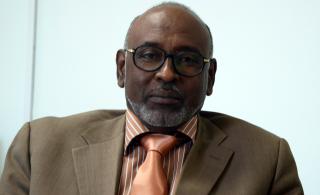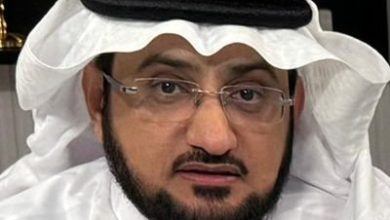Opinion
A Necessary Message for Independence Day and the New Year

By Professor Ahmed Magzoub Ahmed
Some Muslims celebrate the New Year, imitating others, by filling streets with “Christmas trees,” hosting concerts with famous artists, crowding restaurants, exchanging gifts and greeting cards, and engaging in similar practices you all know.
However, our religion has prescribed for us a different calendar, beginning with the sacred month of Muharram and ending with Dhul-Hijjah, linking it to numerous acts of worship and religious rulings.
Allah Almighty says:
“Indeed, the number of months with Allah is twelve [lunar] months in the register of Allah from the day He created the heavens and the earth; of these, four are sacred. That is the correct religion, so do not wrong yourselves during them…”
(Surah At-Tawbah: 36)
The Prophet Muhammad (peace be upon him) said in his sermon on the Day of Arafah during the Farewell Pilgrimage:
“Indeed, time has returned to its original state as it was the day Allah created the heavens and the earth. The year is twelve months, of which four are sacred: three consecutive months—Dhul-Qa’dah, Dhul-Hijjah, and Muharram—and Rajab of Mudar, which lies between Jumada and Sha’ban.”
It is true that some individuals in society have become tied to the Gregorian calendar due to their dealings with the world. If there is no choice but to comply with this, there is no harm in using it for such purposes. However, the relationship with this calendar should not extend beyond this necessity.
If it is essential to mark the end of the year, it should be approached as an opportunity for reflection and learning, as the passage of time reminds us of the diminishing span of our lives. As has been said, “O son of Adam, every day that passes takes part of you with it.”
A poet also said:
“A man rejoices at the passing of the nights,
Unaware that their passing brings him closer to his end.”
Thus, the end of the year represents the closure of a chapter in one’s life, during which deeds are recorded. It is a station for self-assessment and evaluation. If one finds good deeds, they should thank Allah and seek His help for the days ahead. If they find otherwise, they should seek forgiveness and pray for success in righteous actions. The Prophet (peace be upon him) established the practice of supplication even at the sighting of the crescent moon, marking the end of one month and the beginning of another. This emphasizes the importance of repentance and returning to Allah at such moments.
What some Muslims do, however, reflects a state of defeat, imitation, and dependency that has prevailed in eras of cultural decline. We have made others our role models to the extent that if they entered the burrow of a lizard, we would follow them in.
Regarding our people in Sudan, the beginning of the year coincides with the celebration of Independence Day, which we have long commemorated as a time to honor the liberation of our country and the departure of the colonizer, who left in shame and defeat.
However, Sudan’s independence today faces immense challenges. The nation is embroiled in a war involving several countries targeting its sovereignty. In recognition of this danger, the armed forces have devoted themselves to confronting this imposed war, standing alongside the Sudanese people. They continue to bear arms to protect and solidify this independence, defending against aggressors who target the nation’s resources, unity, and people.
This is not a time for frivolity and entertainment. While we rejoice in this occasion, we must channel this happiness into supporting our armed forces, which safeguard the nation. If we have excess wealth, let us use it to aid the displaced, refugees, and families of those who have dedicated themselves to protecting us and our homeland.
Is it not time for this nation to liberate itself from such foreign and alien behaviors?
(From “Al-Muhaqqiq” website)



